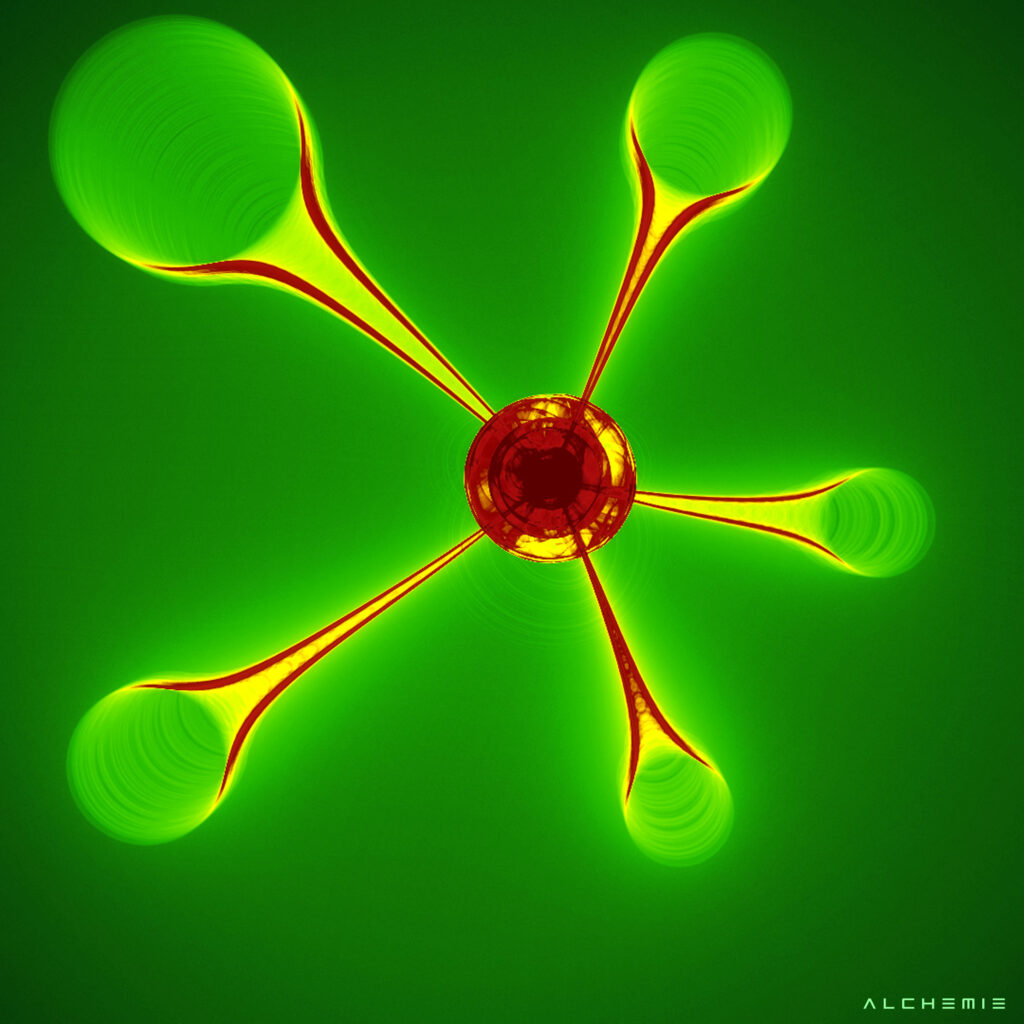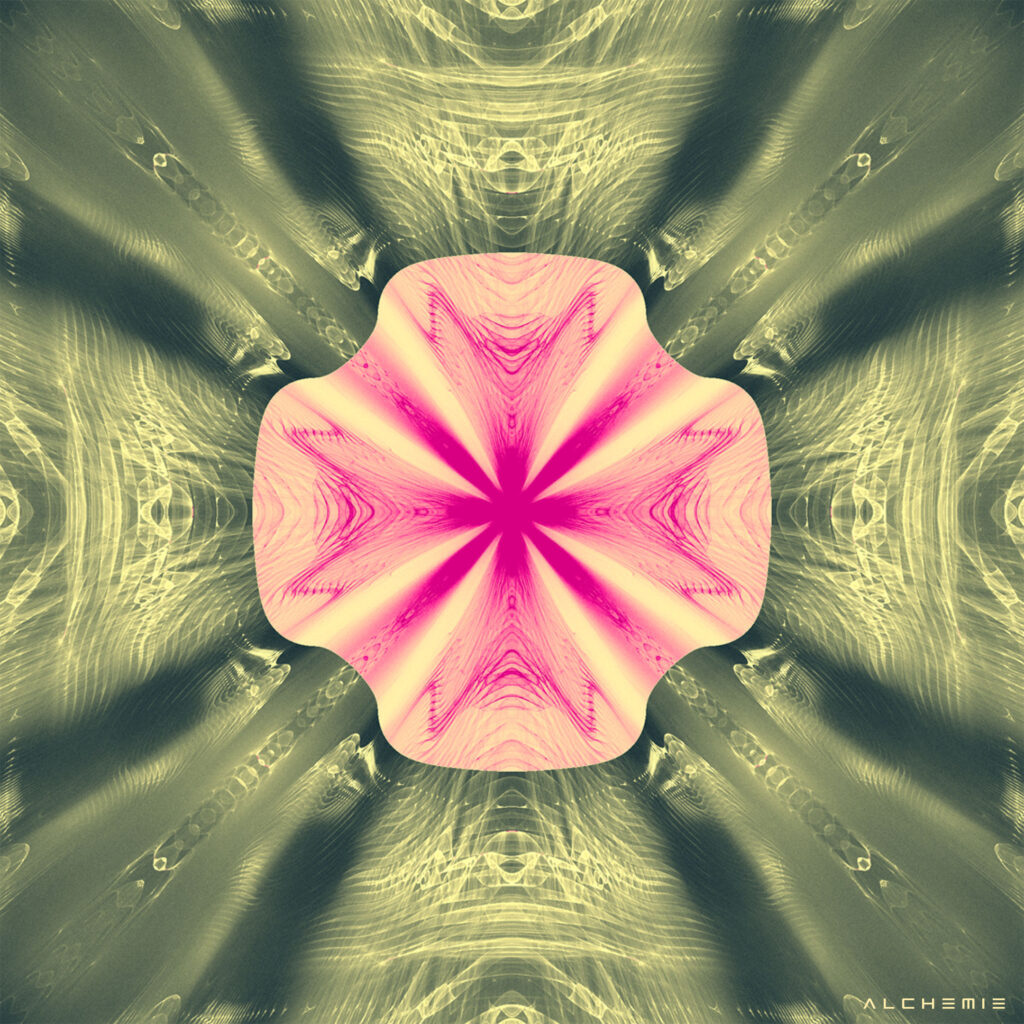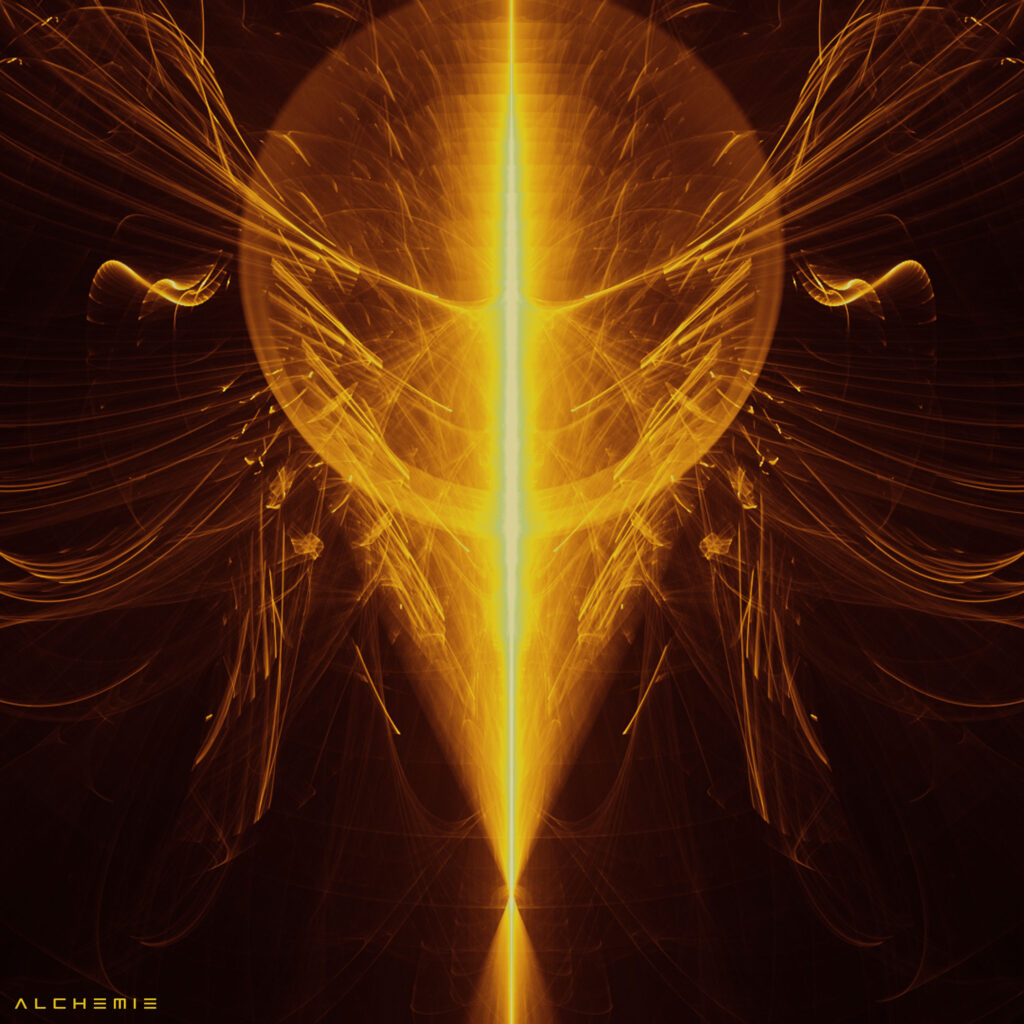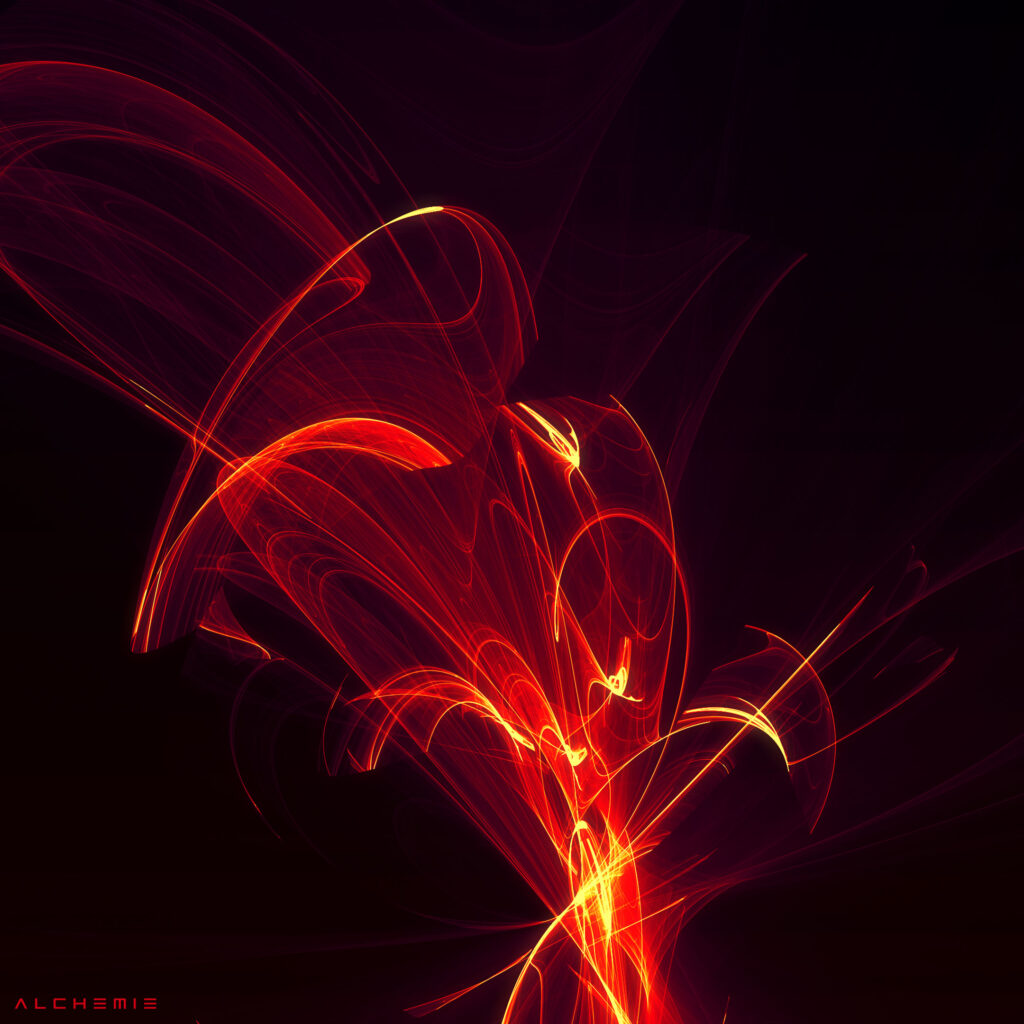In their quest to unlock the secrets of the physical and the ethereal, the early alchemists unearthed the lesser elements. Although not considered divine, the lesser elements played an essential part in alchemical investigations.
This portfolio imagines the lesser elements and their relationship to the transmution of life, body and soul.
Potassium – Element 19
Potassium is essential to life. It regulates the cell and it is believed that an abundance of potassium in the early earth was an important pathway to our evolution.

Bismuth – Element 83
Discovered in ancient times, bismuth was often confused with lead and tin, but was eventually identified as its own metallic entity, and was frequently used in alchemical experiments.
In 1980, a scientist named Glenn T. Seaborg was able to transmute a minute quantity of bismuth into gold at the Lawrence Berkeley Laboratory, via nuclear collisions.

Arsenic – Element 33
A toxic poison, arsenic has a complex association not only with death and mortality, but in ancient times was also used for medicinal cures and to induce a trance-like state for enlightenment.
As a metalloid, arsenic can change between grey, yellow and black states, and was believed by the early alchemists to be a transforming agent.

Antimony – Element 51
Antimony represents the wild, animalistic and instinctual part of human nature.

Phosphorous – Element 15
As seen by its characteristic green glow when oxidized, phosphorous was believed by alchemists to capture light and thus represent the spirit.

Magnesium – Element 12
Once ignited it can’t easily be extinguished, and so magnesium represented eternity and ascension to the early alchemist.
